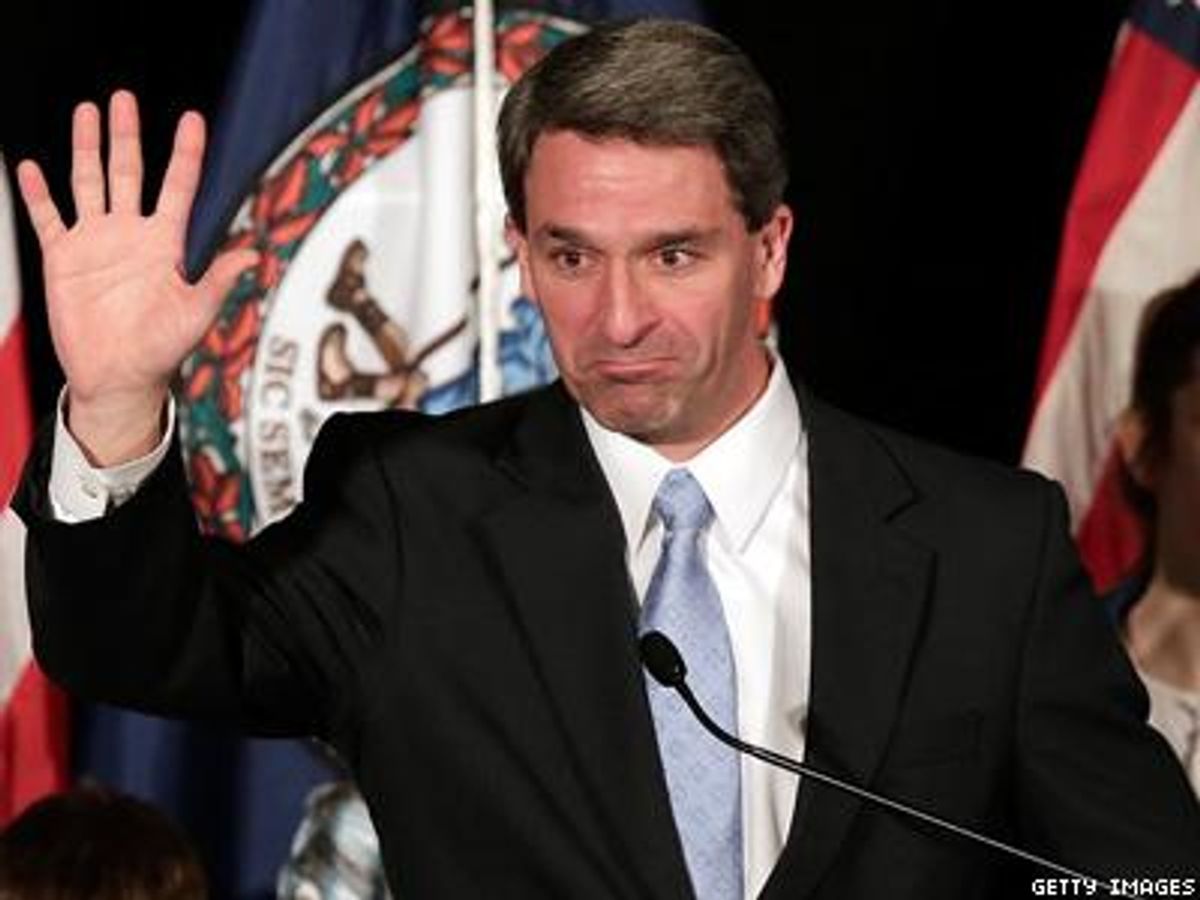The Virginia Department of Taxation, under advisement from the office of the state's antigay outgoing attorney general Ken Cuccinelli, will not allow married same-sex couples to file joint state tax returns.
The decision will force legally wedded gays and lesbians in Virginia to file state returns as unmarried individuals and will prevent small businesses from claiming deductions on benefits offered to same-sex couples. The action also breaks with the new policy of Internal Revenue Service, which recently announced that it would accept joint tax returns from married same-sex couples, regardless of the laws of the state in which they live.
Presently, Virginia's state constitution defines marriage as the union of one man and one woman, and forbids the state's recognition of any other relationship as a marriage. Tax officials point to this amendment as a reason for the department's decision.
"It's not a tax issue. It's a constitutional matter," Joel Davison, a department spokesman, told The Washington Post. "An administrator can't go against his or her state constitution."
LGBT advocates are encouraging Terry McAuliffe, the governor-elect, to follow in the footsteps of Missouri Governor Jay Nixon. In November, Nixon issued an executive order to the state's Department of Revenue requiring all married Missouri couples who file joint federal tax returns, regardless of sexual orientation, to also file jointly with the state. But the language of Virginia's constitutional amendment could prevent McAuliffe from pursuing the same course.
"I think we'll certainly have conversations with Governor McAuliffe's office to change this for gay couples," said Brian Moulton, the Human Rights Campaign's legal director. "But it is very difficult to get around these constitutional amendments."
McAuliffe has not yet decided on a formal response to the issue.
The nondiscriminatory policies of Nixon and the IRS were made possible by the Supreme Court's June 26 ruling in Windsor v. U.S., which struck down a key section of the so-called Defense of Marriage Act. The decision forced the federal government to give equal treatment to legally married same-sex couples.
However, the Post reports that Elizabeth B. Myers, an assistant attorney general, argued that the decision does not affect a preexisting provision that permits a state to refuse to recognize same-sex marriages performed in other areas of the country. The Virginia Department of Taxation based its decision on advice from this office.
Twenty-nine states have constitutional amendments that prohibit marriage equality. Virginia's amendment, approved by voters in 2006, contains particularly wide-reaching and strict provisions that will be difficult to surmount, says Kate Fletcher, a tax attorney.
"Virginia has by far the most hateful and stringent guidelines for married same-sex couples," Fletcher told GayRVA.com. "Far more than any other non-recognition state."
CORRECTION: An earlier version of this story incorrectly stated that Virginia will forbid married same-sex couples from filing joint federal tax returns. The state has no power to issue such an edict, but will not allow married same-sex couples to file joint returns to the state. The Advocate regrets this error.

















































































